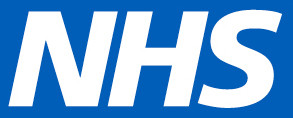Case study: Stockport Clinical Commissioning Group (CCG)
The CCG came into being formally on the 1st April 2013. The organisation had emerged from the former PCT and the majority of staff in post on the 1st of April were former PCT employees. They had all been through a two year transition period and many had had to apply and compete for their roles during November to January the previous year. The new organisation employs c85 staff in five directorate teams. All the directors were new to role and at least 50% of staff were in either completely new or distinctly different jobs than those in the PCT often with new line managers. The CCG deliberately kept fairly flat line management structure (4 levels including the Chief Operating Officer the maximum allowed) The former PCT had allowed old teams to be fairly independent and approach appraisal etc. in its own way. During the first six months the final 15% of staff posts were filled by new people from other organisations.
Overview of pilot
As a new and relatively small organisation Stockport CCG were keen to pilot the tool early on and covering the whole of their organisation. This implementation was separated out into 2 phases, the first to cover CCG staff and the second, exploring how the use of the tool could be extended to the CCG membership.
An important area for learning has been around behaviours and values, with the experience from Phase 1 indicating that staff from the former PCTs had generally not had these conversations in the past. MPCT therefore was used to translate high level value statements into a form that could be the basis for a good conversation.
There was variation in terms of manager engagement. Some were well engaged with the process whilst others were less so and there was recognition at the end of the pilot that implementation should be corporately managed to ensure effective spread and embed throughout the organisation.
In terms of exploring the potential for use with CCG membership, the Organisational Lead met with the Lead GP Appraiser and whilst their view was that MPCT cannot be used as a core component of the GP appraisal, the tool may be useful in terms of providing evidence. In addition feedback was sought from GP Commissioners.
Implementation process
The CCG undertook a start of year conference for all staff in early May 2013 at which the approach was flagged strongly by senior leaders. One significant exercise was to look at behaviours, values and culture. This event was very well received.
All staff had their business objectives agreed during April and May 2013. At the end of May the CCG launched the approach this included the following:
- The new appraisal documentation with the MPC tool built in
- A training and development prospectus with transparent budget
- A draft Value and Behaviour’s framework
- A draft Increment Progression policy
- The training expectations and dates for managers
- The timetable for undertaking talent development conversations by the end of July.
Staff and managers were consulted and training during June commenced. No managers were allowed to undertaken an appraisal unless they had completed the training on the toolkit and a day on the coaching approach and giving feedback.
Managers were asked to cascade the training and briefing they had received to their teams and ensure paperwork was explained and sent to staff before any meetings. It was generally encouraged that staff prepared and completed documentation. The cascade and approach was perhaps less consistent than it might have been. There were regular updates on SharePoint and via Team Briefs across the period but there was no training for staff organised centrally.
All staff in post on May 31st had had an appraisal including a talent development conversation by the end of September and 90% by the 14th August. All managers were put in peer groups and asked to meet during process and at the end and feedback any reflections on the process and suggestions for changes. About 50% followed this. Both the staff forum and two further gatherings of managers were asked to give feedback to the whole process and documentation during September and early October.
Finally, a number of directorates and the Chief Officer’s senior management team held a discussion on their talent and how they would work together. This was very new and felt quite awkward and generally all felt it was right but more guidance would really help those conversations. It was also felt doing this before appraisal might increase consistency and address the lack of 360degree feedback.
The outcome is that we will refine the process but certainly build it into our normal way of working going forward.
The CCG is now running the process for the second year. This time we put on staff briefings as well as management briefings. 60% of staff attended and 90% of managers. The weekly executive meeting discussed the talent development of all direct reports prior to their appraisals to aid triangulation and this was rolled-out to some directorate teams.
What worked well?
A number of managers emphasised the value of using the Start of Year conference to set the scene. At this event we used some of the time to get staff thinking about and describing behaviours associated with the CCG and NHS values. We also made sure that the CCG Chair, Chief Clinical Officer and Chief Operating Officer all made reference to the value of appraisal, personal development and continual improvement. The fact that Director level leadership was really visible was also positively received.
The Behaviour’s and Values framework we developed in quite a quick and rough and ready format was seen as one of the biggest steps forward. Linking appraisal and development for all staff not just to delivery of objectives was welcomed by staff and managers, but managers especially appreciated a very practical approach to support difficult conversations. In our bi-monthly staff survey designed by the staff the question, “Do you understand what is expected from you in terms of behaviour?” consistently scores high or very high across all teams.
Another area some manager’s found really helpful was being asked to encourage staff to distinguish between leadership and technical when considering their future potential. This enabled some very good conversations with staff who had in the past felt that appraisal was irrelevant and in others helped staff to think more carefully what they meant by this. We have had a much bigger take-up of shadowing opportunities than ever before.
One spin-off that managers appreciated was the opportunity created by training and peer groups to consider their management role with peers in a way that they never had before. We have picked this up and taken it forward into more regular peer-to-peer review meetings.
It was also positively received that the CCG committed considerable time at a senior level to this and created an early buzz to the organisation. The coordination of a variety of activities including publishing training opportunities, undertaking talent development conversations all at same-time, introducing revised performance processes reinforced messages.
What worked less well / ideas for improvement?
Some people suggested that despite being a small organisation there was a lack of consistency and value given to the process between directorates and suggested that we should include a programme of both staff-side and management champions in each directorate.
Whilst the values and behaviour framework was well received there was a feeling it arrived a bit late in the process (true) and we needed to perhaps spend a specific session with managers just on this. This was covered more detail at the start of the second year.
There was a feeling that the gold circle at the heart of the appraisal needed a little more differentiation because there were “nearly purple” and in danger of “green” people in the gold and it could leave some disappointed and other’s complacent. Some who had seen 3by 3 matrices felt the emphasis on timescales was missing and could make conversations next year more difficult.


Please sign in or register to make a comment.